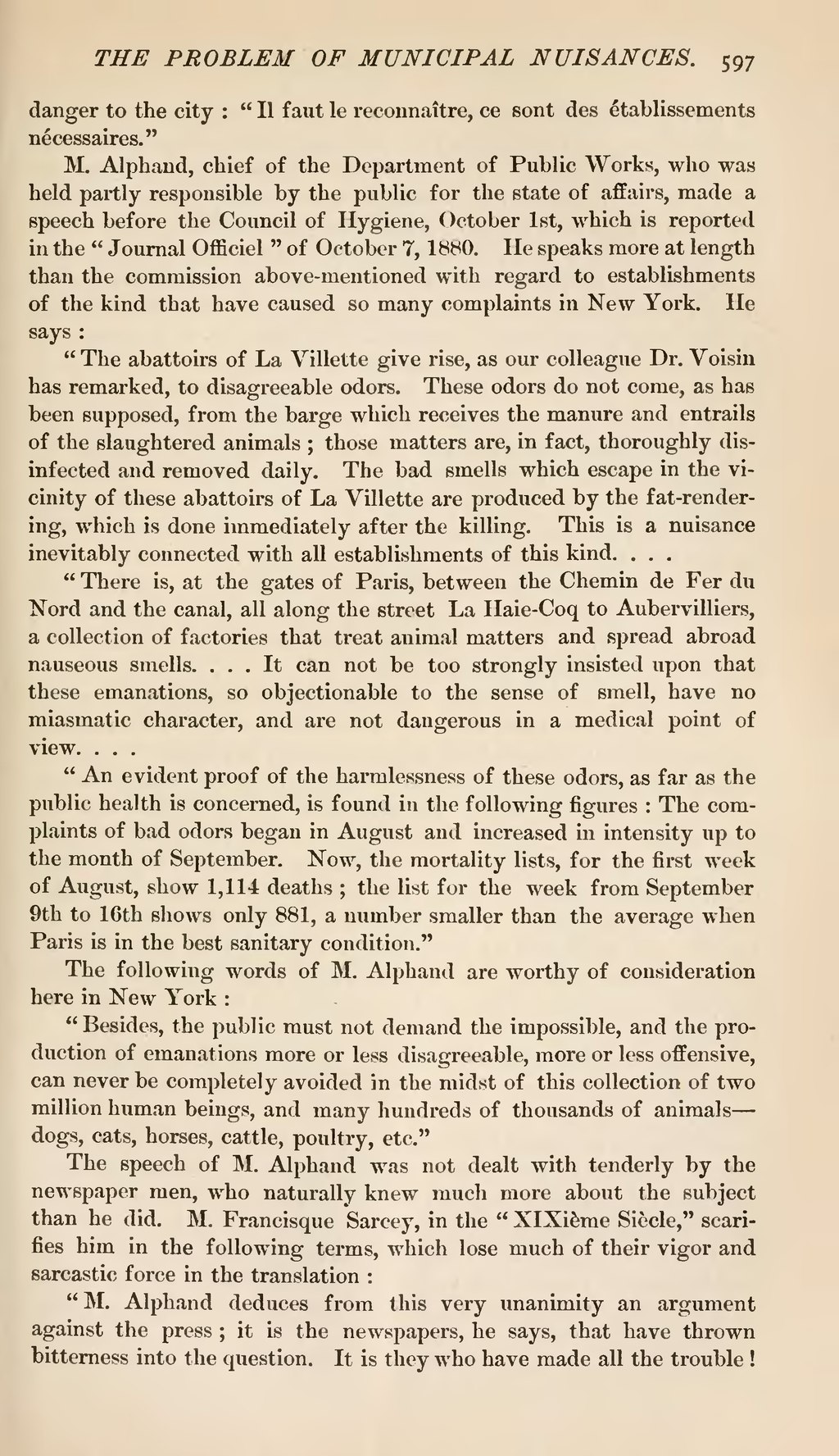danger to the city: "Il faut le reconnaître, ce sont des établissements nécessaires."
M. Alphand, chief of the Department of Public Works, who was held partly responsible by the public for the state of affairs, made a speech before the Council of Hygiene, October 1st, which is reported in the "Journal Officiel" of October 7, 1880. He speaks more at length than the commission above-mentioned with regard to establishments of the kind that have caused so many complaints in New York. He says:
"The abattoirs of La Villette give rise, as our colleague Dr. Voisin has remarked, to disagreeable odors. These odors do not come, as has been supposed, from the barge which receives the manure and entrails of the slaughtered animals; those matters are, in fact, thoroughly disinfected and removed daily. The bad smells which escape in the vicinity of these abattoirs of La Villette are produced by the fat-rendering, which is done immediately after the killing. This is a nuisance inevitably connected with all establishments of this kind. . . .
"There is, at the gates of Paris, between the Chemin de Fer du Nord and the canal, all along the street La Haie-Coq to Aubervilliers, a collection of factories that treat animal matters and spread abroad nauseous smells. . . . It can not be too strongly insisted upon that these emanations, so objectionable to the sense of smell, have no miasmatic character, and are not dangerous in a medical point of view. . . .
"An evident proof of the harmlessness of these odors, as far as the public health is concerned, is found in the following figures: The complaints of bad odors began in August and increased in intensity up to the month of September. Now, the mortality lists, for the first week of August, show 1,114 deaths; the list for the week from September 9th to 16th shows only 881, a number smaller than the average when Paris is in the best sanitary condition."
The following words of M. Alphand are worthy of consideration here in New York:
"Besides, the public must not demand the impossible, and the production of emanations more or less disagreeable, more or less offensive, can never be completely avoided in the midst of this collection of two million human beings, and many hundreds of thousands of animals—dogs, cats, horses, cattle, poultry, etc."
The speech of M. Alphand was not dealt with tenderly by the newspaper men, who naturally knew much more about the subject than he did. M. Francisque Sarcey, in the "XIXième Siècle," scarifies him in the following terms, which lose much of their vigor and sarcastic force in the translation:
"M. Alphand deduces from this very unanimity an argument against the press; it is the newspapers, he says, that have thrown bitterness into the question. It is they who have made all the trouble!
